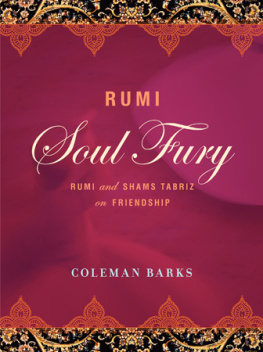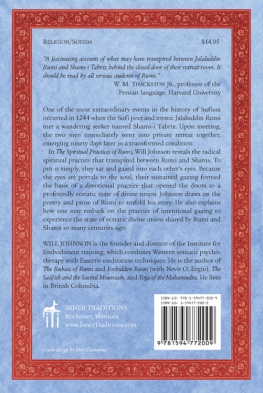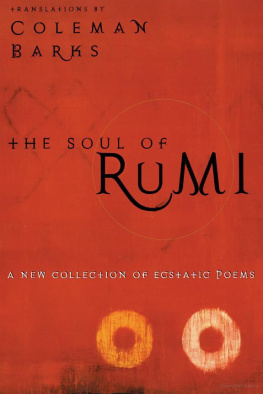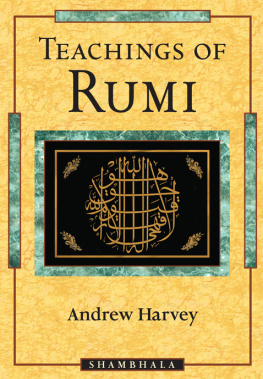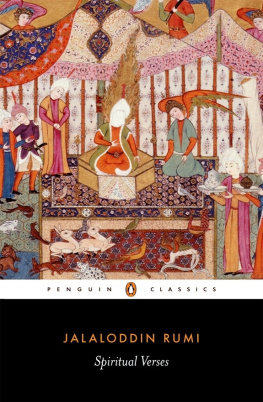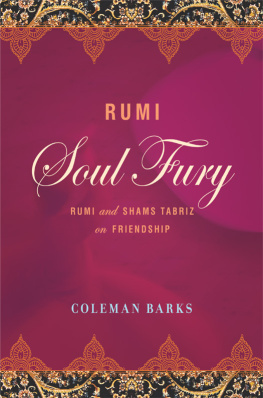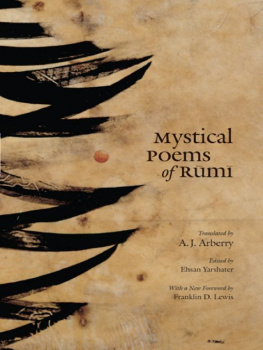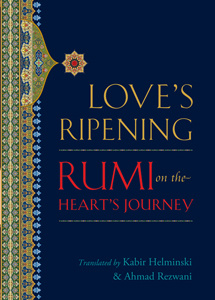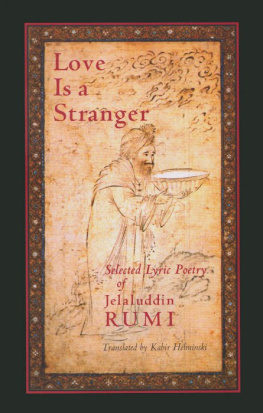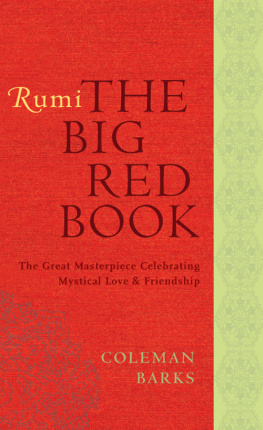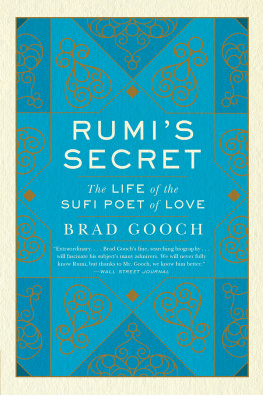All rights reserved. No part of this publication may be reproduced, stored in a retrieval system, or transmitted, in any form or by any means, electronic, mechanical, photocopying, recording or otherwise, without written permission in accordance with the provisions of the Copyright Act 1956 (as amended). Any person or persons who do any unauthorized act in relation to this publication may be liable to criminal prosecution and civil claims for damages.
Introduction
Jalaluddin Rumi, the thirteenth-century Sufi saint and poet, was a master storyteller. One of the most frequently retold of his stories is the tale about the elephant in the dark.
Some Hindus put an elephant on show in an unlit room. Many people came to see it, but because it was impossible to see the elephant in the dark they felt it with the palms of their hands. One put his hand on the elephants trunk, and exclaimed, This creature is like a drainpipe.
Another put her hand on its ear, saying, Its shaped like a fan.
A third, who felt its leg, commented, Its like a pillar.
A fourth placed his hand on its back, and said, Really, this elephant is shaped like a throne.
In like manner, everyone described the elephant from the part he had touched, and their descriptions differed depending on their particular standpoint, with one describing it as being crooked like an s, another straight like an l. If they had each held a candle, their descriptions would not have differed. Knowledge gained through our senses is comparable to knowledge obtained with the palm of a hand: a palm cannot extend over the whole elephant.
The eye of the Ocean is one thing, the eye of the foam another. Ignore the foam and look with the eye of the Ocean. All day long, flecks of foam spray up from the Ocean. You see the spray, but not the Ocean. How extraordinary!
(Mathnawi III: 125971)
Originally told to illustrate the limitations of our human view of the Ocean of Reality, this story can also be applied to our personal view of Rumi. As with those who felt the elephant in the dark with the palm of their hands, our view of Rumi will be governed by whichever aspect of him we have touched, or whichever aspect has touched upon us. Yet, as Rumi himself points out in the conclusion to his story, we tend to focus our attention on the most obvious aspects of things, on the parts with which we can identify due to our own experience of life. So, for some of us Rumi is essentially a poet, for others a storyteller, a mystic or a saint, while for yet others he is their spiritual guide and teacher, known respectfully and lovingly as Mevlana, our Master. Whatever our personal view of Rumi might be, the chances are that we see him through the eye of the foam rather than the eye of the Ocean. Yet the essence of Rumis teaching is that our sensory eye can be transformed into the all-seeing eye of the Ocean.
In his writings, Rumi frequently returns to the theme of form and essence to illustrate the principle that our human perception of the world normally focuses solely on the outward appearance of things, on the outer form. As a consequence, we tend to be unaware of the invisible aspect, the true nature or meaning of a thing, its inner essence. Those, like Rumi, who have attained a unified vision of the outer and inner worlds perceive things differently. They see things from the inside out rather than from the outside in.
The theme of form and essence is also reflected in Rumis writings in another way, since his inspiration progresses from the inner to the outer, from spiritual impulse to verbal expression. Thus, the more we are able to penetrate the outer form of his words, the closer we may come to catching a glimpse of the Source from which they came. This requires a considerable mental leap. Rumi is aware of this, for in the collection of his poetry known as the Divan-i Shams-i Tabrizi he advises:
Study me as much as you like, you will not know me,
for I differ in a hundred ways from what you see me to be.
Put yourself behind my eyes and see me as I see myself,
for I have chosen to dwell in a place you cannot see.
(Divan-i Shams-i Tabrizi 1372: A1:168)
The place we cannot see is the Unseen, the Placeless, also known as the Non-existent. Those who dwell there have attained union with the Source of their being. They no longer exist in the normal sense of this word, having passed beyond the veil that separates us from the Divine Unity. Although they may appear to exist in this world, they are no longer of this world since their human attributes have been drowned in the Ocean of Being. For them, this world and the next have become One. In this state of being, explains Rumi, it is no longer he who is speaking to us.
When a man becomes a vehicle for Spirit,
his human attributes disappear.
Whatever he says,
pure Spirit is speaking,
for the one who belongs in this world
speaks from one who belongs in the other.
If Spirit can have this much effect,
how much greater must be the power
of the One whose Spirit it is!
(Mathnawi IV: 211214)
Perhaps this is the key to Rumis enormous appeal to a twenty-first-century Western audience. Whatever we may assume his outward appeal to be, at an inner level his words resonate with the Spirit lying dormant within our soul, stirring it into life, a momentary fluttering deep within us like a foetus moving in the womb. But unless we remain alert, the ego-centred self claims this movement as its own. We find ourselves thinking, I had a moving experience, and with this the I of the ego once more draws closed the veil of separation. Thankfully, we are able to return to Rumis words again and again, endeavouring to approach their inner meaning through his eyes until the veil of separation becomes less opaque. When it does, we will begin to see the Path that lies ahead of us a path which, possibly without even knowing it, we are already travelling along. Where this particular path is concerned, Rumi advises us to seek out a spiritual guide a shaykh or pir who has intimate knowledge of both the Path and the errings of the soul as it travels along it. If we tread the Path on our own, without a guide, it is more than likely that our ego will take control, assuring us that we are making good progress when in reality we are going nowhere.
Where does the Path lead? Of the many answers provided by the Quran, there are two in particular that are implicit throughout Rumis work: We belong to God, and unto Him we are returning (Q 2:156), and Wheresoever you turn, there is His Face [or Presence] (Q 2:115). Moreover, as the ecstatic poetry in the Divan-i Shams-i Tabrizi reveals, the Path along which we travel with Rumi is none other than the Path of Love.
We are iron filings,
Your love is the magnet...
(Divan-i Shams-i Tabrizi 1690: A2:211)
Get drunk on Love, for Love is all that exists.
Unless you make Love your business,
you will not be admitted to the Beloved.
(Divan-i Shams-i Tabrizi 455: A1:54)
I cried out, Where does the drunken heart go?
The King of Kings replied, Be silent![7:204]
It is going towards Us.
(Divan-i Shams-i Tabrizi


